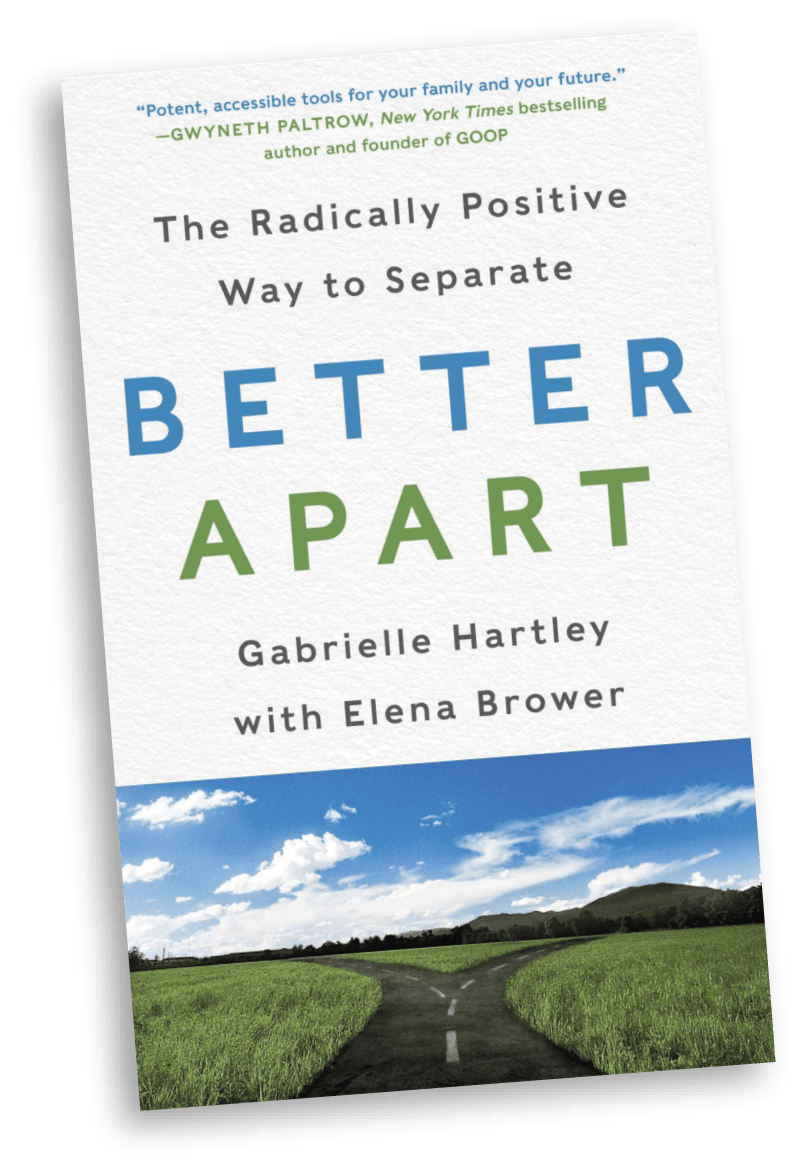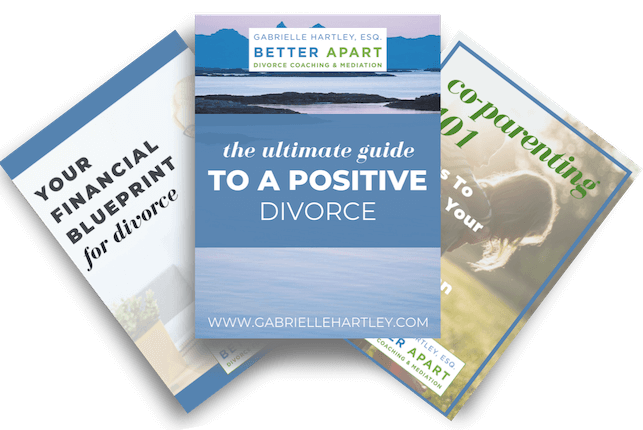Living with a high conflict partner can be a roller coaster of blame, all-or-nothing thinking, overwhelming emotions, and sometimes violence.
If you are planning to separate or get divorced, you might be thinking about how to navigate the family court system with a high conflict partner. But unless you need a restraining order, in a high conflict divorce, you are encouraged to try mediation first. Here’s 5 reasons why:
- It can calm things down. A high conflict partner is likely to be very sensitive and reactive to the news that you want to separate or get divorced. While they often threaten to do this themselves, it’s part of their personality and often they are not serious about it when they say it. But when you say it, it may trigger feelings of abandonment, disrespect, and vindictiveness. Yet when you go to mediation, the mediator can help keep things calm, slow down intense conversations, meet separately and/or together, and focus on your unique case. In mediation, the focus is on what to do now, whereas in court the focus is usually on what happened in the past in a he-said, she-said format. So, mediation is less likely to trigger defensiveness—for each of you-even in a high conflict divorce. In some domestic violence cases, the parties never have to see each other as the mediator can meet with each one separately, such as in separate rooms or separate breakout rooms on a virtual platform, such as Zoom.
- It’s private and confidential. Many high conflict cases have lots of allegations of improper behavior which may be true or untrue. This can be embarrassing and at times humiliating. In the privacy of mediation, the two parties meet with a neutral, confidential mediator, so that no one else needs to know what is said. The final outcome—such as a Marital Settlement Agreement—can become a public court order, but all of the conversations leading up to it are usually confidential by law. Again, this makes the whole process less likely to trigger defensiveness.
- It’s faster than court. In high conflict divorce cases, there are often many upsetting urgent issues that need to be addressed, such as: who will move out and who will live in the house for now, the parenting schedule for the children between households, child support so that both parents have enough to live on, possible spousal support (alimony) so that a supported spouse can financially get on their feet, health insurance, and many other issues. In general, you can usually get in to see a mediator within a week or two of making an appointment. Courts usually schedule hearings several weeks away, and sometimes months later. With Covid, many courts have been mostly shut down, with limited emergency hearings, while other matters are scheduled a long time into the future. Getting these issues discussed quickly with a mediator—especially one who knows the state laws and local standards—can help the parents quickly and more peacefully get separated and on their feet.

4. More detailed and flexible agreements. High conflict cases often benefit from very detailed Marital Settlement Agreements which can become court orders and help the parties avoid many possible future conflicts. In court, a judge applies general state laws and rules, often without much time for each case, which often leaves many details unresolved. In mediation, you can usually take as much time as necessary to address all issues sufficiently. The mediator can also tell you what other couples have done in similar situations, then listen to your proposals with details of how to resolve your unique case. You also have more flexibility in mediation, so that you can deviate from legal standards on many issues (depending on the state), if you both agree.
5. It can cost less. High conflict cases are estimated to be about 20% of separation and divorce cases, but they tend to take about 80% of the time in family court. Most of their decisions are in dispute, there are many he-said she-said arguments that are hard to figure out, and managing the intensity of emotions slows everything down. The focus is often on the past and who did what to whom. To effectively handle a case in court, parties should hire lawyers who are knowledgeable and skilled in handling court cases in your area. This costs money. Returning to court over and over again also costs money. Lawyers need to research issues and prepare paperwork for court, as well as get paid for sitting around at court waiting for your turn in front of a judge. In mediation, the mediator will try to keep the focus on the future and what decisions need to be made. Even if lawyers are involved in mediation cases, they do not need to prepare much paperwork, if any, and mediation sessions in which they participate usually do not involve much waiting around, compared to court.
People often think that high conflict cases will need a judge’s involvement to resolve issues decisively. Sad to say, this is not how it often works in family courts. There is the difficulty of figuring out what has happened in the past when both parents are angry and making allegations that the other is misbehaving. There is the opportunity to return to court again and again on many issues (parenting, child support) until the children are grown up. And many family court judges are new to family law (and new to being a judge), compared to many mediators who are often very experienced family lawyers, family counselors, or retired family law judges.
In short, people are encouraged to try mediation first. (If you need a restraining order, then get one that allows for mediation and try to handle the rest of the case out of court.) There are lists of family (divorce) mediators by geographic region on the websites of professional organizations, such as the Academy of Professional Family Mediators (www.apfmnet.org) and the Association for Conflict Resolution (www.acrnet.org). And if you don’t reach agreements in mediation, you always have the right to go to court afterwards, but most of the time this isn’t necessary.

- Bill Eddy is a family lawyer, therapist, mediator, and the Chief Innovation officer of the High Conflict Institute. He is the lead author of the new book Mediating High Conflict Disputes. His website is HighConflictInstitute.com.

BETTER APART
The Radically Positive Way to Separate
Gabrielle Hartley with Elena Brower
Available on Amazon
“Potent, accessible tools for your family and your future.”
— Gwyneth Paltrow, New York Times Bestselling Author and Founder of GOOP

Get Your FREE Divorce Survive & Thrive Kit!
Includes a financial blueprint for divorce, a co-parenting guide, and the BEST strategies to help you stay positive and take care of yourself during divorce and beyond.
[mailerlite_form form_id=2]


Revolutionizing the conversation around Divorce, one internal narrative at a time.
MENU
FOLLOW GABRIELLE
DISCLAIMER: The commentary, advice, and opinions from Gabrielle Hartley are for informational purposes only and not for the purpose of providing legal advice or mental health services. You should contact an attorney and/or mental health professional in your state to obtain advice with respect to any particular issue or problem.
CONTACT GABRIELLE
NORTHAMPTON ADDRESS: 76 Masonic Street, Northampton, MA 01060
NYC ADDRESS: 150 East 52nd Street, Suite 1002, New York NY 10022
STATEN ISLAND ADDRESS: One Edgewater Plaza Suite 304, Staten Island, NY 10305
PHONE: 413.341.0034/ 917.757.0980

